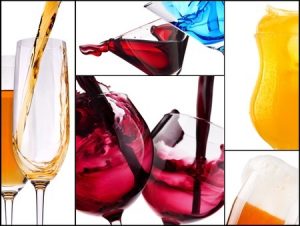Here at AICR, we’re well versed in the latest scientific evidence on food, drink, and cancer prevention. We also know that a lot of people get their health information online, where it can be difficult to separate fact from fiction. So what were we searching for this year, when it comes to cancer and foods and drinks? We used the 2014 Google Trends to find out.
Alcohol and cancer
This was the most popular search term involving cancer and a specific food or drink, for good reason. The latest research has found that alcohol increases the risk of some cancers, including breast and colorectal. Based on the evidence, AICR recommends that if you do drink alcohol, limit your drinks to 1 per day for women or 2 per day for men.
Coffee and cancer
Coffee had a lot of people searching this year and the news is good for coffee drinkers. While scientists early on used to think coffee increased risk for certain cancers, research now shows a lack of association or even a beneficial effect for cancer risk. In 2013, our latest report on endometrial cancer found that drinking coffee – whether decaf or regular – is associated with a lower risk of this cancer. We’ll drink to that!
Guanabana and cancer
A few years ago, interest started to grow about how the tropical fruit guanabana, also called graviola or soursop, could fight cancer. And this year it was one of the top searches.
Many web sites, especially those selling guanabana, make bold claims about its ability to cure cancer. While some studies show that guanabana extract inhibits cancer cells in test tube cultures, no studies have examined the effect of guanabana on cancer in humans. Also, just because guanabana is natural doesn’t mean it’s safe—fruits like guanabana may have detrimental effects, so be sure to check with your doctor before taking guanabana supplements. Here’s a Web MD article that lists possible harmful side effects.
Vegan and cancer
This may have made the top search list because of the numerous testimonials on the web, some saying a vegan diet can prevent or even cure cancer. AICR and the World Cancer Research Fund International reports suggest that for cancer risk, a vegan diet gives no particular benefit over a plant-based diet. That being said, AICR links diets high in fruits, vegetables, whole grains, and beans and low in red and processed meats to lower cancer risk. Vegan diets contain no meat and are often high in these healthy plant foods.
However, there are many other ways to meet AICR’s diet recommendations besides going vegan. Sign up for AICR’s New American Plate Challenge for help shifting to a plant-based diet.





